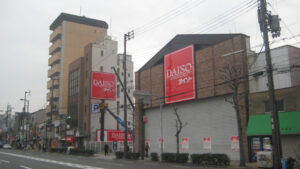Obtaining a visa is often the first hurdle for many people when visiting Japan for tourism purposes. It is important to understand the correct information in advance, including the types of visas, application procedures, required documents, and rules regarding the length of stay. This article provides a clear summary of the latest information on how to obtain a tourist visa for Japan from overseas. If you are planning a trip to Japan, please refer to this guide to ensure a smooth visa application process and prepare for your travel with confidence.
Contents
- 1 What is a Japanese Tourist Visa? Basic Knowledge and Eligible Applicants
- 2 List of Required Documents for Applying for a Japanese Tourist Visa
- 3 Application Methods and Procedures for Japanese Tourist Visa
- 4 Validity Period and Allowed Stay Duration of Japanese Tourist Visa
- 5 Fees and Costs of Japanese Tourist Visa
- 6 Enjoy Your Trip to Japan with Peace of Mind
What is a Japanese Tourist Visa? Basic Knowledge and Eligible Applicants
Overview and Purpose of the Tourist Visa
Definition of the Tourist Visa
A Japanese tourist visa is a permit obtained by foreign travelers who enter Japan for short-term tourism or to visit relatives and acquaintances. Officially called a “Short-Term Stay Visa,” it generally allows stays of 15, 30, or 90 days. This visa permits non-profit activities such as sightseeing, cultural experiences, and visits with close contacts.
Who Needs a Tourist Visa and Who Does Not
Not all travelers from every country require a tourist visa to enter Japan. The Japanese government has established a visa exemption system, allowing passport holders from certain countries and regions to enter Japan visa-free for short-term stays. Conversely, travelers from countries not covered by the exemption must apply for and obtain a tourist visa in advance, even for tourism purposes. Whether a visa is required depends on the traveler’s nationality, purpose of travel, and length of stay.
How the Visa Exemption System Works
The visa exemption system simplifies the short-term entry process for nationals of countries and regions with which Japan has established trusted relationships. Passport holders from exempt countries can stay visa-free for up to 90 days for tourism, short-term business, or visiting relatives. However, travelers must have a valid passport and a return or onward ticket. Immigration officers may verify the purpose of entry and financial means upon arrival. Since the list of visa-exempt countries is periodically reviewed, checking the latest information is important.
Allowed Stay Period and Activities with a Tourist Visa
Short-Term Stay Criteria
The stay period permitted under Japan’s tourist visa (short-term stay visa) is typically 15, 30, or 90 days. The length of stay is specified at the time of application but is ultimately determined by the immigration officer at the point of entry. For stays longer than 90 days, a different type of visa is required. Therefore, travelers with a tourist visa must complete their visit within the allowed period.
Permitted Activities (Tourism, Visiting Relatives, etc.)
Activities allowed under a tourist visa are mainly limited to tourism, cultural experiences, visiting relatives or acquaintances, and short-term business activities such as attending meetings or exhibitions. Examples include sightseeing at tourist spots, staying at accommodations, dining, shopping, experiencing traditional culture, and visiting family or friends residing in Japan. These activities must be non-profit, and any form of paid employment is prohibited.
Prohibited Activities
Labor activities and actions aimed at long-term residence are prohibited under the tourist visa. Specifically, working in Japan (including part-time or casual work), studying, training, long-term stays, and commercial transactions or business activities involving compensation are not allowed. Furthermore, involvement in criminal activities or acts against public order and morals is strictly forbidden. Violations may result in visa cancellation or deportation.
Differences Between Tourist Visas and Other Short-Term Stay Visas
Difference from Business Short-Term Visas
The tourist visa is primarily for short-term stays aimed at tourism or visiting relatives, while the business short-term visa is intended for those visiting Japan for business purposes. Activities allowed under the business short-term visa include business negotiations, attending meetings, and participating in exhibitions. However, neither visa permits employment within Japan. The key difference is that the business visa has a more limited purpose of stay compared to the tourist visa.
Difference from Student and Work Visas
Student and work visas are designed for long-term stays with the purpose of education or employment. In contrast, the tourist visa targets non-profit short-term stays and does not allow working or attending school. Obtaining student or work visas requires more stringent documentation and screening, as well as procedures for changing residency status. Activities permitted under student and work visas are strictly prohibited under a tourist visa.
Overview of Special Visa Systems
Japan also has special visa systems issued for particular circumstances. These include diplomatic visas, official visitor visas, and specific activity visas. Unlike general tourist or business visas, these are issued for special missions or activities. Although rarely used by ordinary travelers, they apply in cases such as intergovernmental exchanges or participation in specific projects.
List of Required Documents for Applying for a Japanese Tourist Visa
Basic Required Documents
Passport Requirements and Validity
A valid passport is the first requirement when applying for a tourist visa. It is recommended that the passport have at least six months of validity remaining at the time of application. Additionally, the passport must remain valid throughout the intended period of stay in Japan. Old, damaged passports or those with incomplete information may result in visa application denial, so careful attention is necessary.
Tips for Filling Out the Visa Application Form
The visa application form can be downloaded from the official website of the Japanese embassy or consulate. Fill out the form accurately and completely, paying particular attention to your name, date of birth, purpose of stay, and length of stay. If handwritten, write legibly, and don’t forget to sign in the designated area. Incomplete or incorrect information may cause delays in processing or result in rejection.
Photo Specifications and Precautions
The photo attached to the application must have been taken within six months prior to the application date. The standard size is 4.5 cm in height by 3.5 cm in width, showing a full-face, front-facing, plain background. Wearing hats or sunglasses is generally prohibited, and the entire face must be clearly visible. Some embassies or consulates may require the applicant’s name written on the back of the photo, so be sure to follow their instructions.
Documents Related to Travel Plans and Financial Proof
How to Create a Travel Itinerary (Travel Plan)
A travel itinerary is a document outlining your detailed plan of activities during your stay in Japan. It should clearly list the places you plan to visit each day, accommodations, and transportation methods. Creating an accurate and realistic plan is important to clearly convey the purpose of your trip and where you will be staying. Although there is no official format, many embassies and consulates provide sample templates which are recommended as references when preparing your itinerary.
Proof of Financial Support (Bank Balance Certificate, etc.)
To prove you can cover your living expenses and travel costs during your stay, you must submit a bank balance certificate or a copy of your bank passbook. The certificate is generally required to be in the applicant’s name; however, if a relative or other person will bear the costs, documents such as a guarantor letter indicating this must also be provided. The required balance varies by visa application office, but generally a minimum balance of several hundred thousand yen is expected.
Invitation Letter and Guarantor Letter (If Applicable)
If you have relatives or acquaintances in Japan, you may need to submit an invitation letter and a guarantor letter from them. The invitation letter includes the inviter’s name, address, contact information, and the purpose of the invitation. The guarantor letter is a document guaranteeing your living expenses and return to your home country during your stay. These documents can enhance your credibility and help with visa approval, although they may not be mandatory in all cases.
Other Documents Required as Needed
Employment Certificate of the Applicant
An employment certificate is a document that proves the applicant is currently employed. It includes details such as the company name, address, contact information, duration of employment, and job title. This document demonstrates that the applicant has a stable source of income and intends to return to their home country. Many Japanese embassies and consulates require submission of this document, and an original or a certified copy is typically needed.
Family Registry or Marriage Certificate (When Visiting Family)
If visiting family members in Japan, it may be necessary to submit documents that prove the familial relationship, such as a family registry (koseki tohon) or marriage certificate. These documents clarify the purpose of the visa application and enhance the credibility of the applicant during the review process.
Past Travel History and Proof of Return Intent
Providing documentation of previous travel history to Japan or other countries can increase the applicant’s credibility. Examples include copies of past visas or passport pages with entry and exit stamps. Additionally, proof of intent to return—such as copies of airline tickets or certificates of employment or school enrollment—may be requested. These documents serve as important evidence that the applicant poses a low risk of overstaying.
Application Methods and Procedures for Japanese Tourist Visa
Preparation and Precautions Before Applying
Choosing the Application Office (Embassy, Consulate, or Authorized Agency)
The Japanese tourist visa must be applied for at the Japanese embassy or consulate that has jurisdiction over the applicant’s place of residence. In some countries or regions, visa applications are outsourced to specialized authorized agencies. Applicants should check the official websites of Japanese diplomatic missions in their country to confirm the application office, required documents, reception hours, and reservation methods before applying. Some offices require in-person submission, and others may not accept applications by mail.
When to Apply and Application Period
Generally, applications for a tourist visa are accepted starting three months before the planned date of entry into Japan. Applying too early may result in the application being rejected, so it is important to prepare and apply at the appropriate time based on travel plans. The processing period usually takes about five business days, but this may be longer during busy periods or due to individual circumstances. Applicants are advised to apply well in advance to allow sufficient time.
Application Fees and Payment Methods
There is a prescribed fee for tourist visa applications. The fee varies depending on the country and application office, and there are different fees for single-entry visas and multiple-entry (multiple) visas. Payment methods may include cash, bank transfer, or credit card, but applicants must follow the instructions of the application office. Fees are non-refundable, so be sure to confirm the amount and payment method before applying.
Detailed Procedure for Visa Application
Points for Document Submission and Interviews
When applying for a tourist visa, it is crucial to submit all required documents accurately and completely. Some embassies or consulates may require an interview, so be prepared to clearly explain the purpose of your stay and your planned schedule. Providing false information is strictly prohibited, and honest communication is key to obtaining a visa. Additionally, incomplete or incorrectly filled documents can delay the review process, so careful attention is necessary.
How to Use the Online Application (eVisa)
The Japanese government has introduced an electronic visa (eVisa) system available to certain countries and regions. With eVisa, applicants complete the process by accessing a dedicated website, entering the required information, and uploading necessary documents. After submission, progress updates are sent via email, and once approved, the eVisa is issued electronically. Since this system is limited to specific countries, it is important to check the official website to confirm eligibility before applying.
Review Period and Communication After Application
The visa application review period is typically about five business days but may take longer depending on the time of year and individual circumstances. After applying, embassies or consulates may contact applicants by phone or email, so it is important to remain reachable. Requests for additional documents or notifications about interview dates may be made, so prompt responses are essential.
Important Notes After Visa Issuance
Checking Visa Validity and Length of Stay
The issued tourist visa has an expiration date by which you must enter Japan. The allowed length of stay after entry varies depending on the visa type and the immigration officer’s decision, typically 15, 30, or 90 days. It is essential to confirm both the visa validity period and permitted stay duration, as overstaying is a violation of the law.
Inspection and Required Documents at Entry
Upon entering Japan, you will be required to present your passport and visa. Additionally, you may be asked questions or requested to submit documents regarding your purpose of stay, accommodation, and financial status. It is important to accurately provide the requested information and follow the instructions of the immigration officers. Health checks or quarantine procedures may also be conducted, especially in response to infectious disease concerns.
Visa Cancellation and Change Procedures
Even after the visa is issued, if you wish to change your purpose of stay or extend your stay, you must follow the prescribed procedures. Overstaying or engaging in unauthorized activities can result in visa cancellation or deportation. If you want to change or extend your visa, consult the Immigration Services Agency of Japan and submit the necessary documents to obtain official permission.
Validity Period and Allowed Stay Duration of Japanese Tourist Visa
What is the Visa Validity Period?
Period from the Date of Issuance
The validity period of a Japanese tourist visa refers to the deadline by which the visa holder must enter Japan after the visa is issued. Typically, the validity period is set to about three months (90 days), but it may vary depending on the applicant’s circumstances and the issuing office. If you do not enter Japan within this validity period, the visa becomes invalid, so careful attention is required.
Differences in Allowed Entry Period
The period during which you can enter Japan varies depending on the type of visa issued. For example, a single-entry visa permits entry only once within the validity period, while a multiple-entry visa allows multiple entries into Japan during the validity period. It is important to confirm the type of visa you have and understand the conditions regarding the permitted entry period.
Precautions Regarding Expired Validity
Attempting to enter Japan after the visa’s validity has expired will result in denial of entry and the need to reapply for a visa. Even if you enter within the validity period, overstaying beyond the duration approved by the immigration officer is a violation of the law. Make sure to fully understand both the visa validity and permitted stay duration and act within those timeframes.
Permitted Stay Duration within Japan
Typical Stay Periods (15, 30, 90 days, etc.)
The stay period allowed under a Japanese tourist visa is usually one of the following: 15 days, 30 days, or 90 days. For most countries, the standard short-term stay visa permits up to 90 days. However, the exact duration may vary depending on the applicant’s circumstances and the judgment of the embassy or consulate handling the application. The final permitted stay is determined at the immigration checkpoint upon entry, so it is important to communicate your intended duration when applying.
Extension of Stay: Possibility and Procedures
In principle, the stay period granted by a tourist visa cannot be extended. However, in unavoidable circumstances such as illness or natural disasters, an extension may be permitted upon application to the Immigration Services Agency of Japan. If you wish to extend your stay, it is necessary to start the procedure early before your authorized stay expires and prepare the required documents.
Penalties and Risks for Violations
Overstaying beyond the permitted period is considered illegal residence and carries severe penalties. Violators may face deportation and be banned from re-entering Japan, which can severely affect future travel plans. Additionally, overstayers are subject to crackdowns and enforcement by immigration authorities, so it is critical to strictly observe the authorized stay duration.
Re-entry Permit and Its Relationship to Visas
Overview of the Re-entry Permit System
The re-entry permit is authorization granted by the Minister of Justice to foreign residents in Japan who temporarily leave the country and plan to re-enter. This permit simplifies the re-entry immigration procedures. There are two types of re-entry permits: a single-use permit valid for one re-entry and a multiple-use permit valid for multiple re-entries within its validity period. The permit’s validity period corresponds to the resident’s current status of residence and can be up to five years (six years for special permanent residents). Holders of a re-entry permit do not need to obtain a new visa when re-entering Japan, and their status of residence and period of stay are maintained.
Re-entry Rules for Tourist Visa Holders
Tourist visa (short-term stay visa) holders who leave Japan must obtain a re-entry permit. The re-entry permit can be either single-use or multiple-use and must be applied for at the regional immigration office that has jurisdiction over the applicant’s residence before departure. The application fee is 3,000 yen for a single-use permit and 6,000 yen for a multiple-use permit. Leaving Japan without obtaining a re-entry permit results in the loss of the status of residence, requiring a new visa to enter again.
Special Provisions and Important Notes
Some foreigners are eligible for a special provision called the “Deemed Re-entry Permit,” which allows them to leave Japan without obtaining a formal re-entry permit, provided they re-enter within one year of departure. However, this does not apply to those with a short-term stay status or a residence period of three months or less. When using the deemed re-entry permit, the traveler must inform the immigration officer at departure and fill in the necessary information on the re-entry and departure record (ED card). Failure to use this provision properly results in loss of residence status, so caution is required.
Fees and Costs of Japanese Tourist Visa
Breakdown of Visa Application Fees
Typical Application Fees
The following fees apply to applications for Japanese tourist visas (short-term stay visas):
- Single-entry visa: Approximately 3,000 yen
- Multiple-entry visa: Approximately 6,000 yen
- Transit visa: Approximately 700 yen
These fees may vary depending on the applicant’s nationality and place of stay. Please check the official website of the Japanese embassy or consulate where you are applying for the most accurate information.
Payment Methods and Important Notes
- Cash Payment in Local Currency: Cash payment in local currency is commonly required at many Japanese embassies and consulates. Please prepare the exact amount needed for the fee.
- Credit Card Payment: In some countries and regions, payment by credit card is possible through the online application (eVisa) system. Follow the instructions provided by the respective embassy or consulate.
- Non-Refundable Fees: Visa application fees are non-refundable, even if the visa is not issued. Therefore, make sure to confirm all required documents and eligibility before applying.
Additional Fees for Proxy Application Services
- Agent Fees: If applying through an authorized proxy application agency approved by the Japanese embassy or consulate, additional agency fees will apply on top of the official visa issuance fees. These fees vary by agency, so check in advance.
- Additional Service Charges: Some proxy agencies offer extra services such as document preparation and application support, which may incur further costs. Please contact each agency directly for details on fees and services.
Common Issues and Solutions During Application and Entry
Main Reasons for Visa Denial and Countermeasures
Common reasons for tourist visa denial include incomplete or false information in the application documents, unclear purpose of stay, insufficient proof of funds, and a history of illegal overstays. To avoid denial, it is important to prepare documents accurately and carefully, and to clearly explain your purpose of stay. If you have any doubts, consult the embassy or consulate before applying, and make sure to gather the latest required documents.
Points to Note During Immigration Inspection
At the time of entry, immigration officers will check your passport and visa, and may ask questions regarding your purpose of stay, place of accommodation, and return plans. Providing false information is strictly prohibited, so answer honestly and accurately. It is also advisable to carry documents related to your travel plan, such as your itinerary and return flight ticket, to facilitate the process. Follow the instructions of the immigration officers courteously.
Handling Visa Extension and Status Change Applications
If you wish to extend your tourist visa or change your status of residence, you must apply to the Immigration Services Agency of Japan. Extensions are generally granted only for unavoidable circumstances, so apply early and prepare the necessary documents. For status changes, a new residence status is required if you intend to engage in activities other than tourism. It is important to provide proper documentation and explanations, and seeking expert advice may be helpful.
Enjoy Your Trip to Japan with Peace of Mind
The necessity of a Japanese tourist visa varies depending on the traveler’s nationality and purpose of stay. Accurate document preparation and understanding of procedures are essential for a successful application. By following the application methods, required documents, and stay regulations outlined in this article, you can avoid common issues and enjoy a comfortable trip to Japan. Also, be sure to confirm your visa’s validity period and take note of entry requirements to ensure a safe and enjoyable stay.












